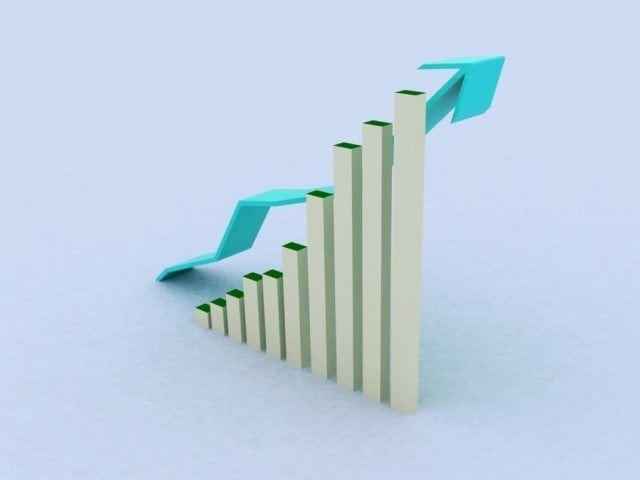Short- and medium-term perspectives are contrastingly different
Often alarm bells are set ringing without assessing the cost and benefits of a certain indicator

Often alarm bells are set ringing without assessing the cost and benefits of a certain indicator. PHOTO: FILE
As a consequence, the stock market plummeted around 27% from its all-time high. Despite all odds, political instability did not create a dent, which was earlier expected, and the economy remained resilient to a great extent. Most economic indicators are still positive and broad-based improvements can be witnessed across agriculture, industrial and services sectors of the economy. A better way to judge the economy is to look through short- and medium-term perspectives.
The short-term view is normally presented in the media where the focus of the analysts is on monthly imports and exports, balance of payments (BOP), acquisition of foreign debts, remittances and inflation. For instance, if exports increased for a consecutive two to three months, the commentators would start arguing that exports have rebounded. They link this rebound with improved law and order situation and energy situation.
On the contrary, increases in imports are linked with declining international oil prices and food prices. On a monthly basis, the statistics of BOP are presented by the State Bank of Pakistan (SBP). The commentators clamour about the precarious situation of the BOP and horrors of default are frequently raised. The fact of the matter is that Pakistan has never defaulted on its external debt and commitments in the last 70 years.
Similarly, alarm bells of acquisition of foreign debt are frequently raised without looking at the costs and benefits of foreign debt. The benefits of foreign debt are that it plugs the gap of domestic saving and investment and provides precious foreign exchange in the time of need. The costs of foreign debt are that it makes the economy prone to external shocks and reduces economic sovereignty of a country.
In addition, the stagnancy of remittances is associated with either turmoil in the Middle East region or declining oil prices since these economies are mainly oil-dependent.
The inflation statistics also come under scrutiny on a monthly basis without looking at the costs and benefits of inflation. If inflation inches up slightly, the commentators starts creating noise. With devaluation of rupee, the range bound inflation will increase to some extent. In the coming days, the media is replete with the narrative of inflation. Whenever inflation went into double digits that were the result of external oil shock since Pakistan is a net importer of oil.
There is a need to look at the economy from a medium-term perspective. In the medium-term, developments at the China-Pakistan Economic Corridor (CPEC) front would affect our industry and services sectors. Our entrepreneurs may face competitive challenges from their Chinese counterparts. Specifically, machinery-related imports may bring dividends in the medium-term for the economy.
The energy-related interventions have scaled down electricity load-shedding in the short-term. However, the government would face financial challenges related to capacity charges in the medium-term. The electricity generation would surpass requirements in the medium-term. The government has to plan ahead on how to utilise the surplus electricity. On the contrary, the government has assumed away the problem of surplus electricity on the ground that the economic growth will catch up with the surplus.
In a nutshell, the political governments and the media look at the economy from a short term perspective and brush aside the medium term view. Usually, the solutions of the short run become the problem of the medium run if astute planning is not done. Going forward, management of external front would remain a significant challenge for the policymakers.
The writer is an Assistant Professor of Economics at SDSB, Lahore University of Management Sciences (LUMS)
Published in The Express Tribune, January 8th, 2018.
Like Business on Facebook, follow @TribuneBiz on Twitter to stay informed and join in the conversation.


















COMMENTS
Comments are moderated and generally will be posted if they are on-topic and not abusive.
For more information, please see our Comments FAQ